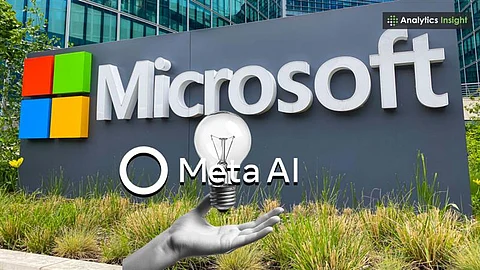

The AI talent war has created a new front in the recruitment rooms. Microsoft is back from its fast-paced AI product ramp-up. Industry insiders have stated that the tech giant is secretly making a ‘most-wanted’ list of Meta’s top engineers and researchers. Recruitment documents reveal recruiters have been instructed to act on ‘lightning speed,’ making offers within 24 hours to top candidates.
The spotlight is on Reality Labs, GenAI Infrastructure, and Meta AI Research specialists, the core teams in Meta’s decade-long vision. The aim is to poach talent and stem a competitor's momentum.
According to a report in Business Insider, the offer bags are made to make an impact. For the creme de la creme, Microsoft is offering:
Base salary: Up to Rs. 3.39 crore ($408,000)
On-hire stock grants: Almost Rs. 15.8 crore ($1.9 million)
Annual stock awards: Approximately Rs. 12.5 crore ($1.5 million)
Cash bonus: Up to 90% of salary
Competitive boost: Option to push even higher for top talent
Though these numbers are staggering, insiders maintain that the ultimate allure of long-term stock options comes first. Microsoft’s aggressive move into artificial intelligence might become a shareholder payoff if this plan succeeds.
Also Read: Microsoft Forecasts Strong Cash Flow for FY 2026, Raising Price Target to $668
Meta has been cutting its record-breaking cheques. A few weeks ago, it paid Rs. 2,083 crore to 24-year-old whiz kid Matt Deitke. In other instances, the firm has floated up to Rs 833 crore signing bonuses to poach from competitors like OpenAI.
Reports suggest some Meta deals stretch to Rs. 2,500 crore over four years, with Rs. 833 crore in year one alone. The spree is part of CEO Mark Zuckerberg’s bid to lead in generative AI and superintelligence research, particularly on its flagship Llama 4 project.
This is not simply a tug-of-war over payroll checks. It’s a battle for the brains, creating the future of technology. Scientists who can create the next generation of big language models and infrastructure are now worth their weight in gold.
Microsoft is selling more than money: startup culture, flexibility, and an opportunity to influence core products are all a part of the package. For others among the veterans of big research labs such as DeepMind, that sales pitch is as compelling as any salary check.
Industry experts caution against a simmering ‘salary bubble’ in AI jobs. When nine-figure offers are the norm, the actual prize isn’t the technology still to be created. It is the talented individuals capable of building it.
The ramifications extend far beyond company competition. Whoever triumphs in this talent war will govern teams and guide the direction of the next leaps, from generative models that can think like humans to infrastructure that can train trillion-parameter systems.
In a field where innovation cycles are measured in months, locking up the right talent today could mean setting the pace and ethos of AI progress for the next decade.
